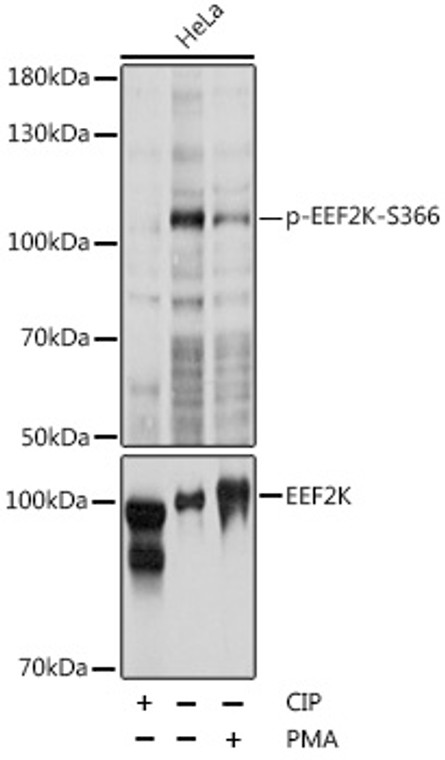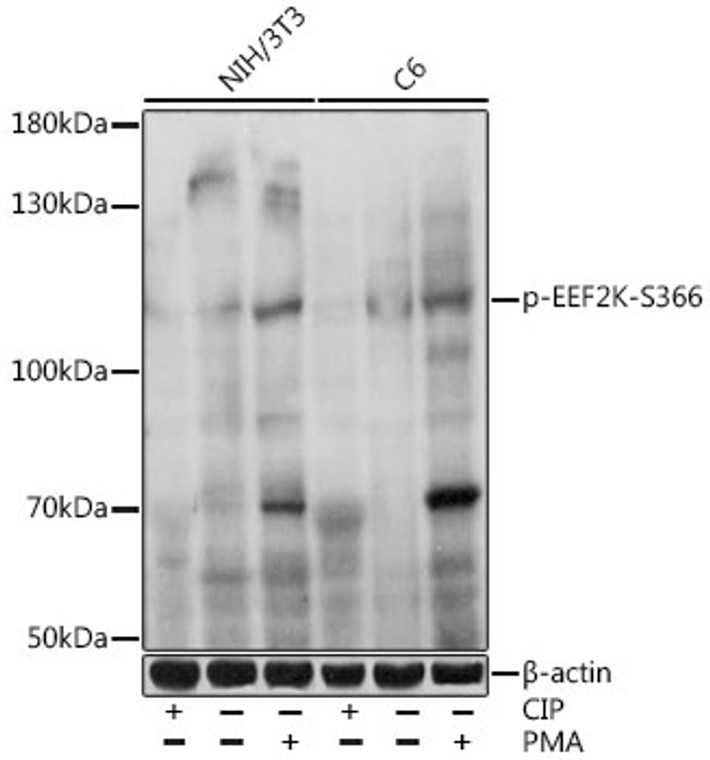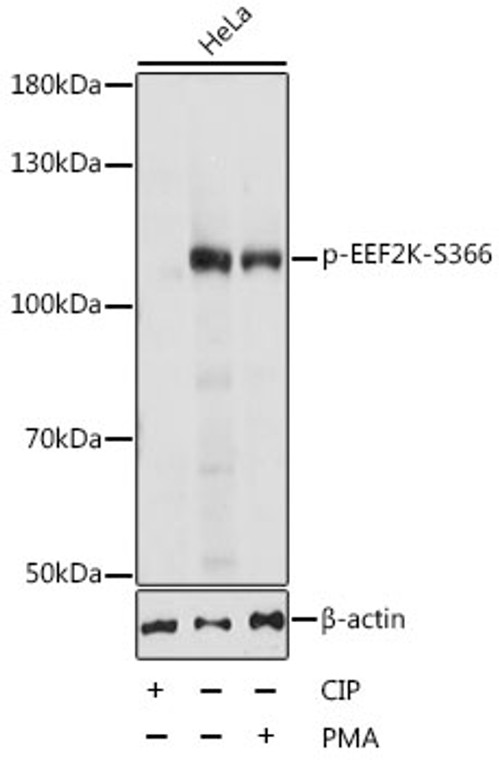| Host: |
Rabbit |
| Applications: |
WB |
| Reactivity: |
Human/Mouse/Rat |
| Note: |
STRICTLY FOR FURTHER SCIENTIFIC RESEARCH USE ONLY (RUO). MUST NOT TO BE USED IN DIAGNOSTIC OR THERAPEUTIC APPLICATIONS. |
| Short Description: |
Rabbit polyclonal antibody anti-Phospho-EEF2K-S366 is suitable for use in Western Blot research applications. |
| Clonality: |
Polyclonal |
| Conjugation: |
Unconjugated |
| Isotype: |
IgG |
| Formulation: |
PBS with 0.01% Thimerosal, 50% Glycerol, pH7.3. |
| Purification: |
Affinity purification |
| Dilution Range: |
WB 1:500-1:2000 |
| Storage Instruction: |
Store at-20°C for up to 1 year from the date of receipt, and avoid repeat freeze-thaw cycles. |
| Gene Symbol: |
EEF2K |
| Gene ID: |
29904 |
| Uniprot ID: |
EF2K_HUMAN |
| Immunogen: |
A synthetic phosphorylated peptide around S366 of human EEF2K (NP_037434.1). |
| Immunogen Sequence: |
TLSGS |
| Post Translational Modifications | Autophosphorylated at multiple residues, Thr-348 being the major site. Phosphorylated by AMP-activated protein kinase AMPK at Ser-398 leading to EEF2K activation and protein synthesis inhibition. Phosphorylated by TRPM7 at Ser-78 resulting in improved protein stability, higher EE2F phosphorylated and subsequently reduced rate of protein synthesis. Phosphorylation by other kinases such as CDK1 and MAPK13 at Ser-359 or RPS6KA1 and RPS6KB1 at Ser-366 instead decrease EEF2K activity and promote protein synthesis. |
| Function | Threonine kinase that regulates protein synthesis by controlling the rate of peptide chain elongation. Upon activation by a variety of upstream kinases including AMPK or TRPM7, phosphorylates the elongation factor EEF2 at a single site, renders it unable to bind ribosomes and thus inactive. In turn, the rate of protein synthesis is reduced. |
| Protein Name | Eukaryotic Elongation Factor 2 KinaseEef-2 KinaseEef-2kCalcium/Calmodulin-Dependent Eukaryotic Elongation Factor 2 Kinase |
| Database Links | Reactome: R-HSA-166208 |
| Alternative Antibody Names | Anti-Eukaryotic Elongation Factor 2 Kinase antibodyAnti-Eef-2 Kinase antibodyAnti-Eef-2k antibodyAnti-Calcium/Calmodulin-Dependent Eukaryotic Elongation Factor 2 Kinase antibodyAnti-EEF2K antibody |
Information sourced from Uniprot.org
12 months for antibodies. 6 months for ELISA Kits. Please see website T&Cs for further guidance












